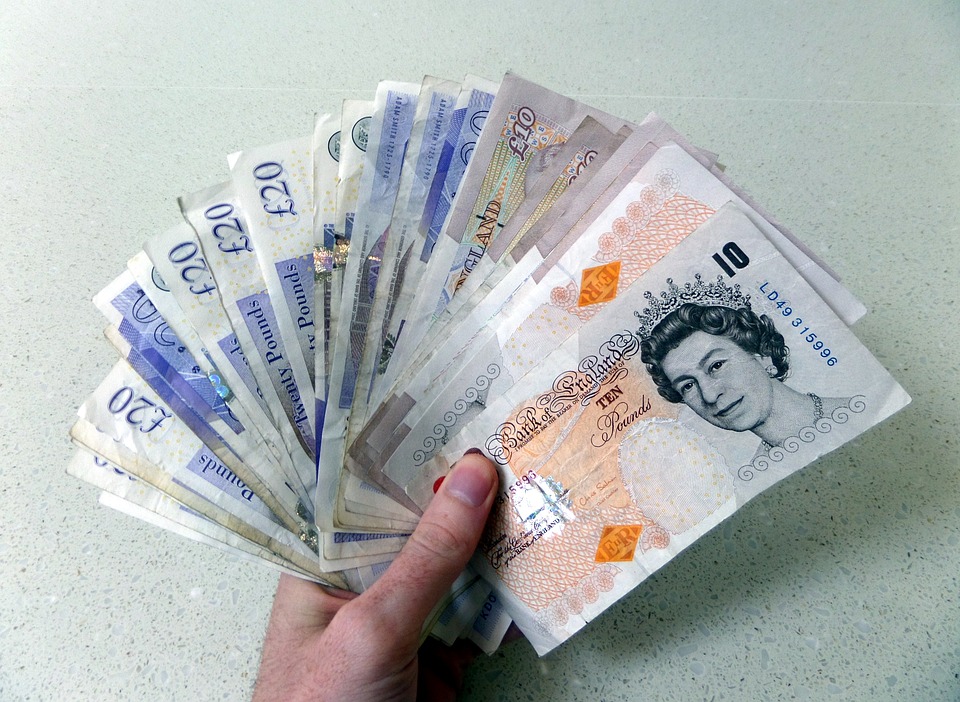Sterling hits strongest level since Feb 2020 versus euro, drops vs dollar
"The main driver for the GBP's recent rebound has been encouraging COVID data from the UK which has diminished downside risks posed by further disruption from the Delta variant," wrote MUFG currency analyst Lee Hardman in a note to clients. Analysts also attributed the gains versus the euro to the Bank of England on Thursday setting out plans for how it would tighten monetary policy.

The pound extended recent gains to hit its strongest level since February 2020 against the euro on Friday, but it fell versus the dollar after better-than-expected U.S. payrolls data boosted the U.S. currency.
The pound has been a strong performer in recent weeks as COVID-19 cases, while still high, have fallen and high vaccination rates have allowed the British government to lift most social-distancing rules. At 1456 GMT, the sterling was on track for a 0.6% weekly gain versus the euro – its third consecutive weekly rise and the biggest since May. It was up 0.2% on the day at 84.79 pence per euro, having hit 84.7 earlier in the session - the pound's strongest since February 2020.
Versus the dollar, it was down 0.4% at $1.3866, set to end the week slightly lower. This drop was less severe than other risk-sensitive currencies – such as the Australian and New Zealand dollars – which were also hurt by the dollar's gains. "The main driver for the GBP's recent rebound has been encouraging COVID data from the UK which has diminished downside risks posed by further disruption from the Delta variant," wrote MUFG currency analyst Lee Hardman in a note to clients.
Analysts also attributed the gains versus the euro to the Bank of England on Thursday setting out plans for how it would tighten monetary policy. The central bank's message after a policy meeting on Thursday was slightly hawkish: the monetary policy committee voted 7-1 to maintain the pace of its government bond-buying, even though it expects inflation to jump to 4.0% around the end of the year. But it also said that "some modest tightening" of monetary policy over its three-year forecast period was likely to be necessary.
Because the hawkish shift had been largely expected, sterling did not react significantly to the news. But analysts said that it helped to reinforce the currency's strengthening trend. The central bank's messaging "may be a small step for the BoE, but it is a giant leap compared to ECB communication," wrote ING FX strategists in a client note.
"With the BoE's finger now on the trigger – any better UK data could start to see some outsize reaction in GBP as BoE tightening expectations are brought forward." But Marshall Gittler, head of investment research at BDSwiss, said that the BoE's "hawkish tilt" was no more than what was expected and tightening is not likely to be quick.
"There's little reason for this announcement to boost the pound," he said.
(This story has not been edited by Devdiscourse staff and is auto-generated from a syndicated feed.)
ALSO READ
EXCLUSIVE-U.S. sanctions hamper Russian efforts to repair refineries, sources say
COLUMN-U.S. manufacturers emerge from slump, set to boost fuel use: Kemp
Euro zone yields fall after U.S. jobless claims rise
Euro zone bonds hold steady before key U.S. jobs report
EXCLUSIVE-U.S. Justice Department to meet Boeing fatal crash victims' lawyers










